Minister Mansoori installs last sensor at flagship project in Dietzenbach
1.5 million euros in state funding and over 85% energy cost savings - street lighting in Dietzenbach is a flagship project
With particularly energy-efficient street lighting and over 80 sensors, not only are the streetlights now controlled throughout Dietzenbach, but data on traffic, car parks, waste and the environment is also collected and immediately analysed. Hesse has subsidised the project with 1.5 million euros.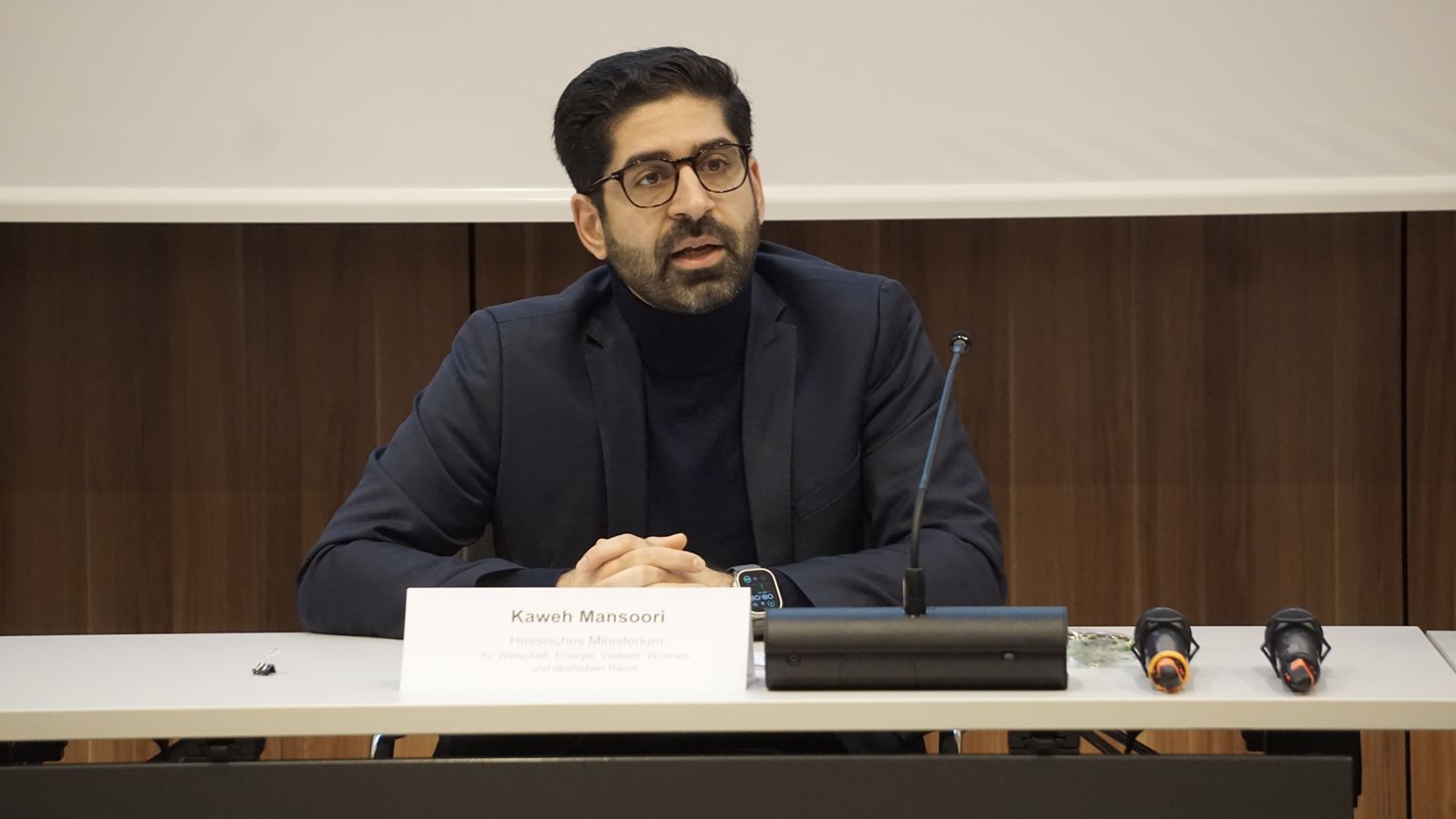
"The project here in Dietzenbach shows how energy efficiency and digitalisation can be implemented in municipalities and what improvements this can bring for municipal services. The sensors help to control the lighting as required. This not only saves energy, but also reduces light pollution in the city," said the Minister. "Alongside Fulda, Dietzenbach is one of two municipalities to receive this grant for smart and energy-efficient infrastructure. The experience gained from the two closely monitored pilot projects can be utilised in other municipalities. In this way, we are supporting digital change and greater energy efficiency in cities and municipalities."
Sensors optimise municipal tasks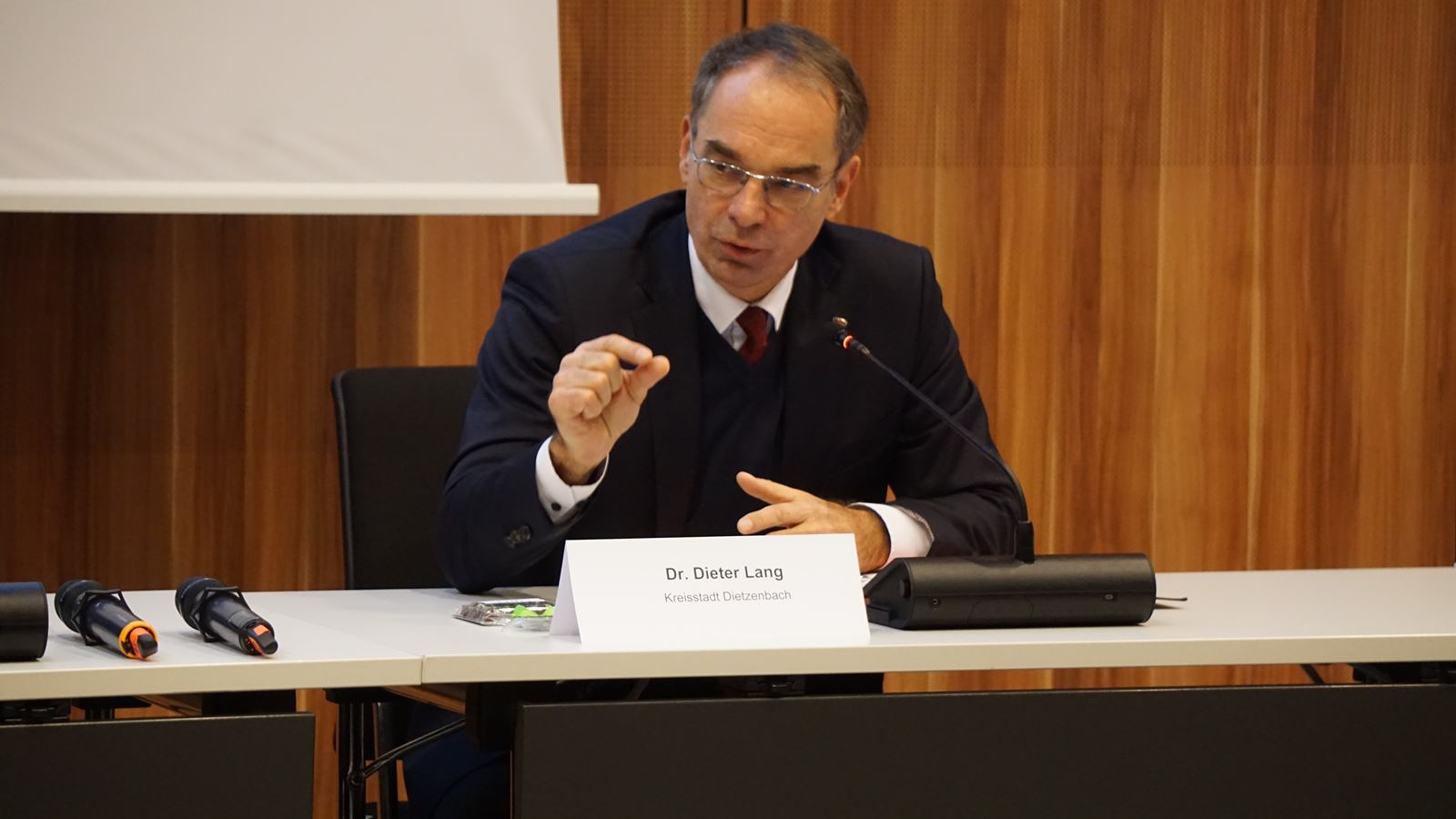
Reducing traffic congestion
Twelve thermal imaging cameras record the traffic in the district town. On the one hand, their data is used to control the street lighting depending on the current volume of traffic. On the other hand, this data is fed into AI models that output optimised switching recommendations for traffic light control to the Hessen Mobil traffic computer. The aim is to divert traffic out of the city more quickly at peak times in future. This will benefit commuters, residents and the environment.
Safer and more economical thanks to LED lighting technology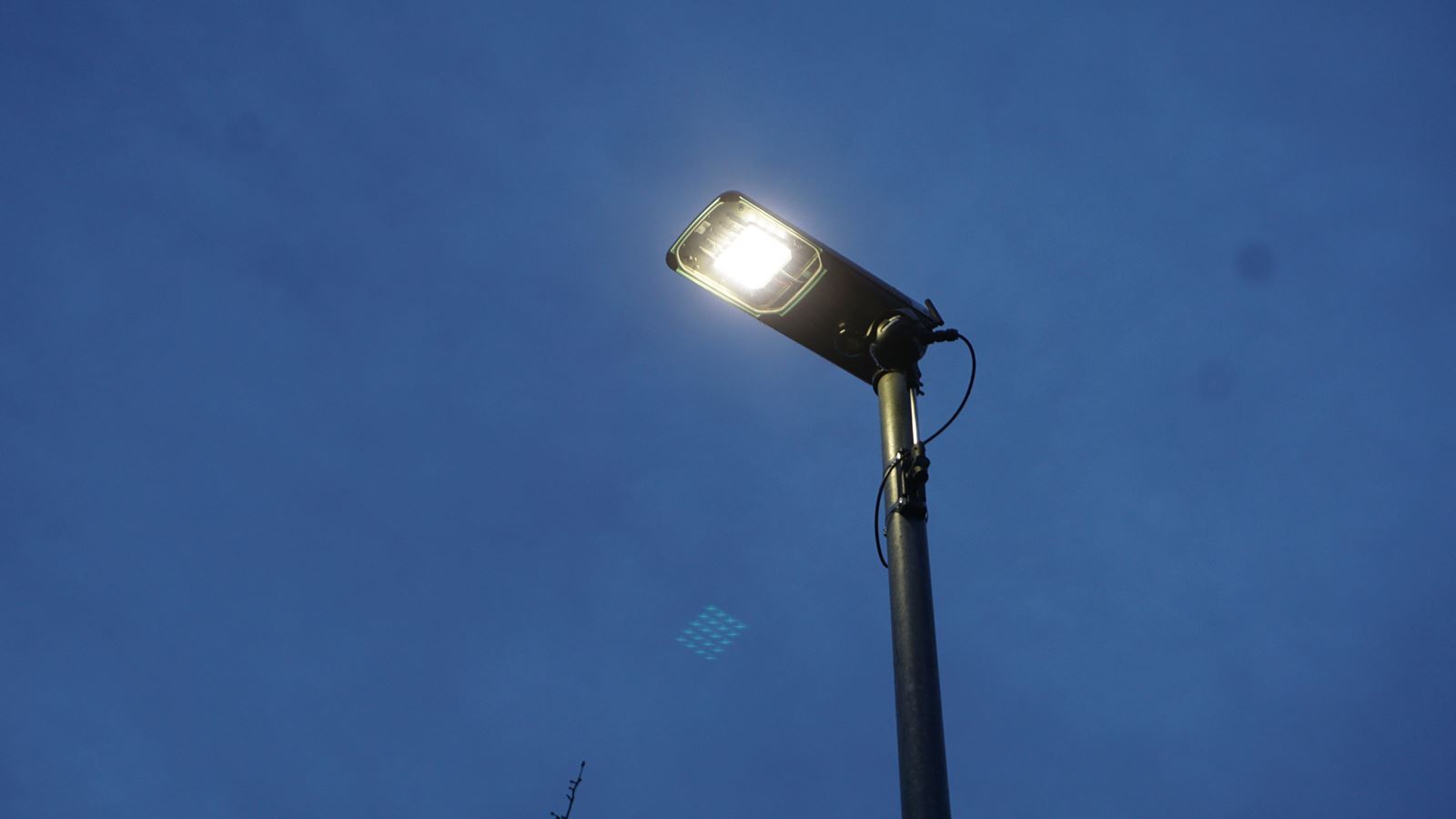
Many tasks, one dashboard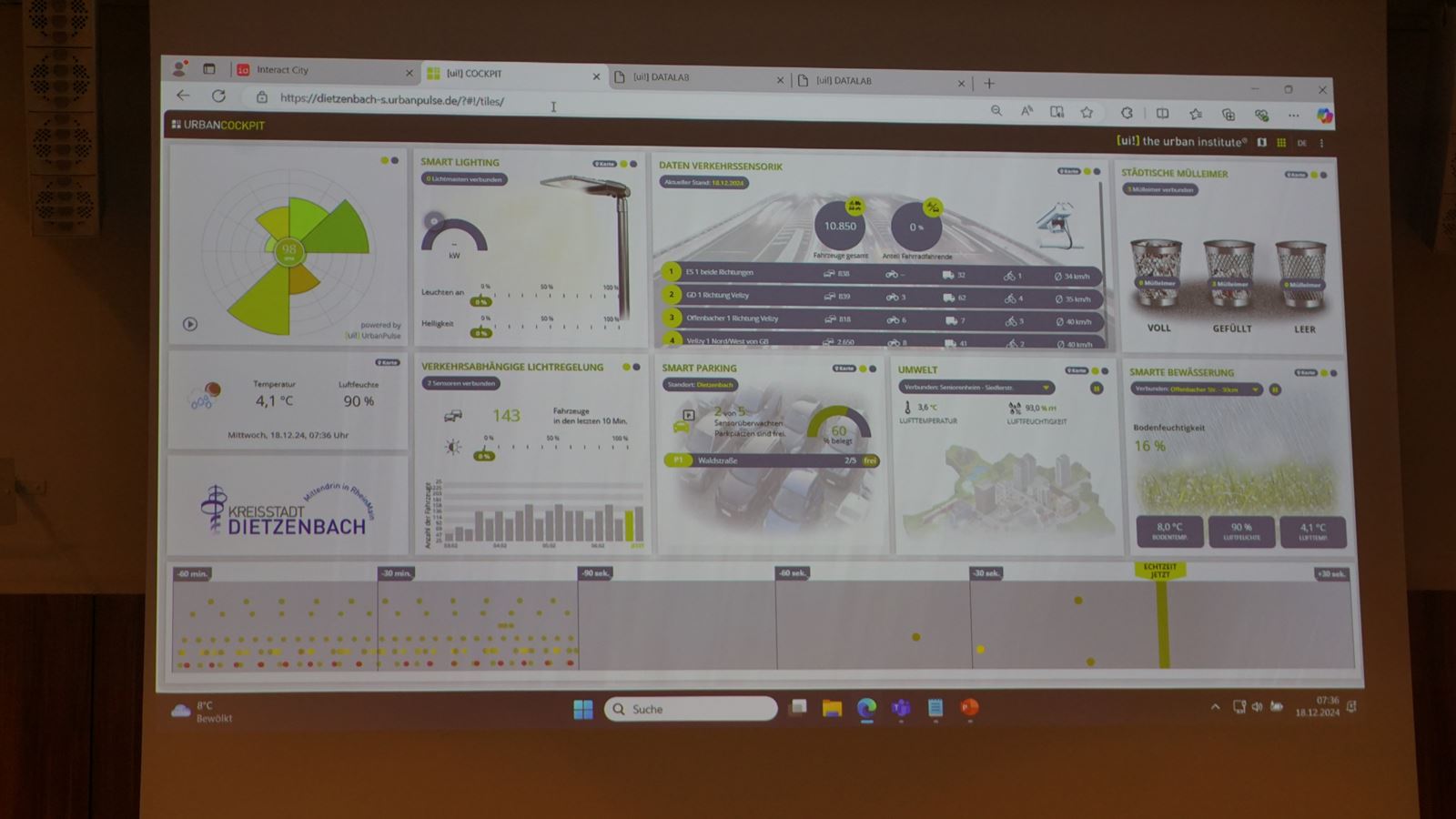
Background: partners and history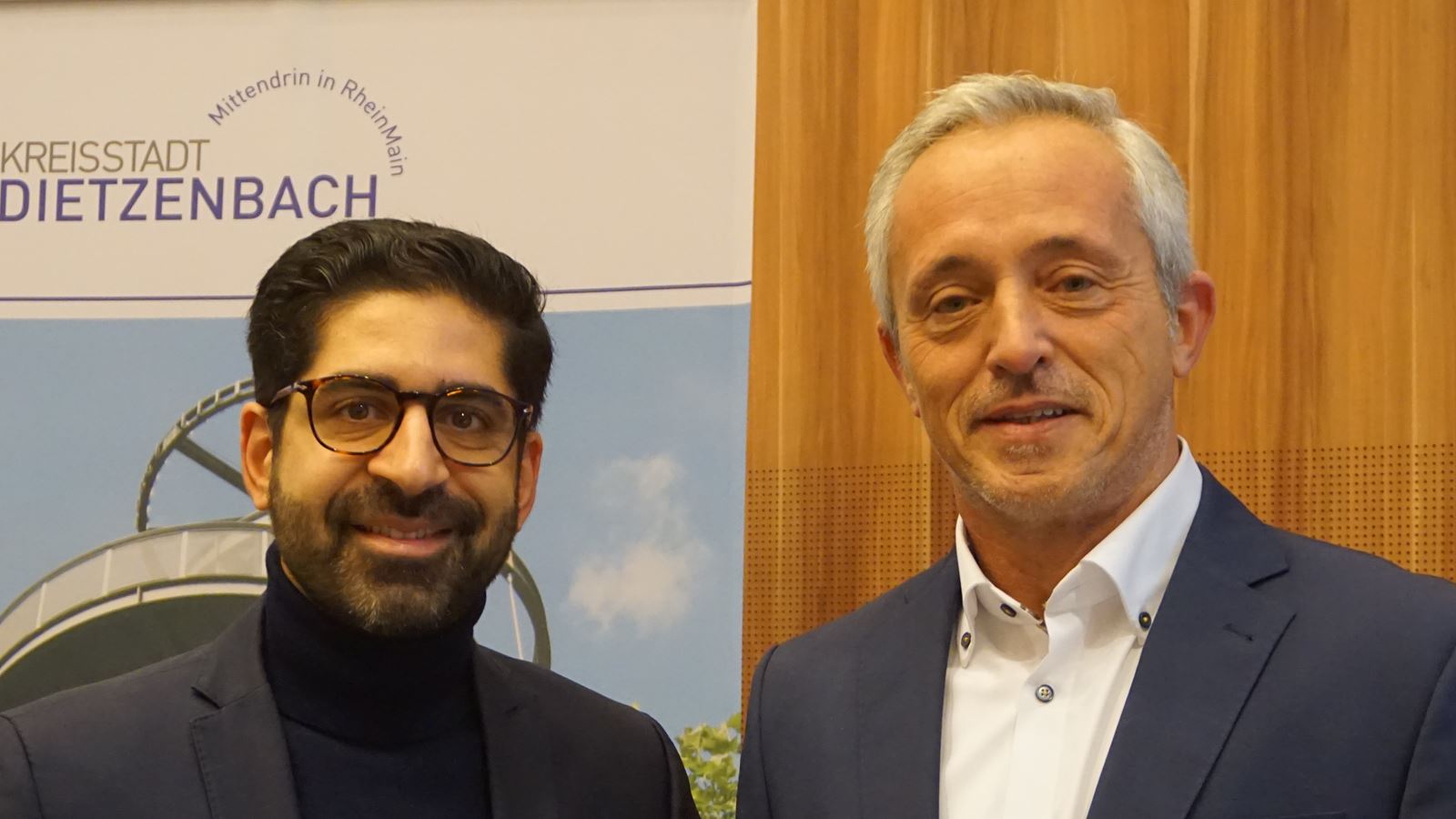
The technologies required for this are to be highly integrated into the existing mast infrastructure of the city of Dietzenbach as part of the project. As part of the model project, the lighting masts will not only serve as carriers for ultra-modern and networked luminaires, but will also house LoRaWAN gateways and the technologies required for traffic detection. The luminaires also contribute to expanding the municipal situation picture with data on noise and ambient temperatures.
The diverse data is collected on an open data platform, harmonised and analysed in real time and fed for direct further use. The traffic data is used on the one hand to control the light depending on the traffic and on the other hand to generate switching recommendations for the traffic light systems.
In 2018/2019, the city digitally recorded all street lighting on its own with the aim of switching to LED lighting in the long term. In 2021, the consultancy HessenEnergie Gesellschaft für rationelle Energienutzung mbH and LEA LandesEnergieAgentur Hessen GmbH (LEA Hessen) were commissioned by the Hessian Ministry of Economics to look for suitable municipalities to test smart LED street lighting via a call for funding as part of the Hessian municipal energy guidelines. In 2022, the municipal council approved the project, and in the same year Dietzenbach received a funding commitment of €2.1 million from the state of Hesse. In 2023, HessenEnergie planned and accompanied the tendering process, and in 2024 the sensors were installed, the software systems were set up and the conversion to LED street lighting took place. Due to good planning and lower project costs, Dietzenbach will not utilise the funding commitment and will only require 1.5 million euros in funding.
Outside of the pilot projects, the state of Hesse provides funding for LED street lighting in addition to federal funding. Local authorities interested in the Hessian funding programme can contact the Hesse State Energy Agency.
Source: PM City of Dietzenbach from 18.12.2024









